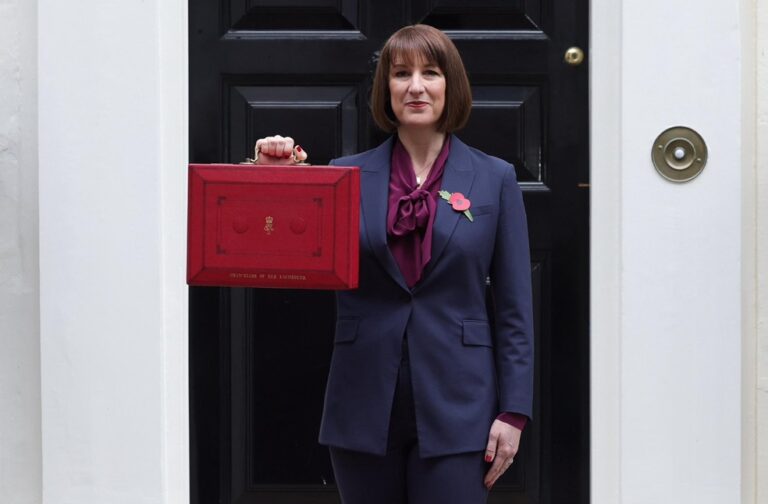London: Rachel Reeves, Britain’s new Chancellor of the Exchequer, introduced the UK’s largest tax increase in three decades in her inaugural budget, aiming to repair underfunded public services through substantial spending.
The Labour Party’s economic plan targets businesses and the wealthy to bridge the nation’s budget deficit and enhance public services strained by years of economic instability.
Reeves, a former Bank of England Economist, emphasised the need for stability and responsible spending, contrasting her approach with the unfunded tax cuts of former Prime Minister Liz Truss in 2022.
The £40 billion ($52 billion) annual tax increase will raise the government’s tax intake to 38.2 percent of GDP by 2030, up from the current 36.4 percent. This figure remains below that of other European economies but is set to reach a historic UK high. Reeves justified the increase by citing years of austerity that left essential services, such as the health system and schools, struggling.
The choices I have made today are the right ones for our country.
To restore stability to our public finances, protect working people, fix our NHS and rebuild Britain.
If the Tories disagree with these then they must answer:
What choices would they make? pic.twitter.com/gyx8PvrWhS
— Rachel Reeves (@RachelReevesMP) October 30, 2024
Economic Forecast
The budget focuses on long-term investments, with Reeves announcing increased borrowing for infrastructure and development, targeting £100 billion in investment over the next five years.
To balance the budget by 2030, Reeves raised the employer social security contribution rate by 1.2 percentage points and adjusted the payment threshold, a measure projected to generate £25 billion ($33.75 billion) annually by 2029. Other targeted areas include capital gains, inheritance taxes, and private equity income. Notably, Reeves also preserved the cap on business profit taxes, providing slight relief to business owners.
This is a huge day for Britain.
After 14 years of decline, we will invest in our country – rebuilding our schools, hospitals and roads.
We won’t shy away from the tough decisions to grow our economy and protect working people’s payslips.
There is a brighter future ahead.
— Keir Starmer (@Keir_Starmer) October 30, 2024
Support for Working Households
Aiming to support working families, Reeves extended the fuel duty freeze and reduced draught beer taxes in pubs, measures expected to boost public support for Labour as it gains traction in the polls. She also ruled out further hikes on basic and higher income taxes, providing some relief to taxpayers.
Reeves adjusted her fiscal targets, planning to reduce public sector liabilities rather than debt. Over the next five years, the government is expected to borrow £142 billion ($191.7 billion) more than previously estimated to fund the Labour Party’s ambitious investment plans.



